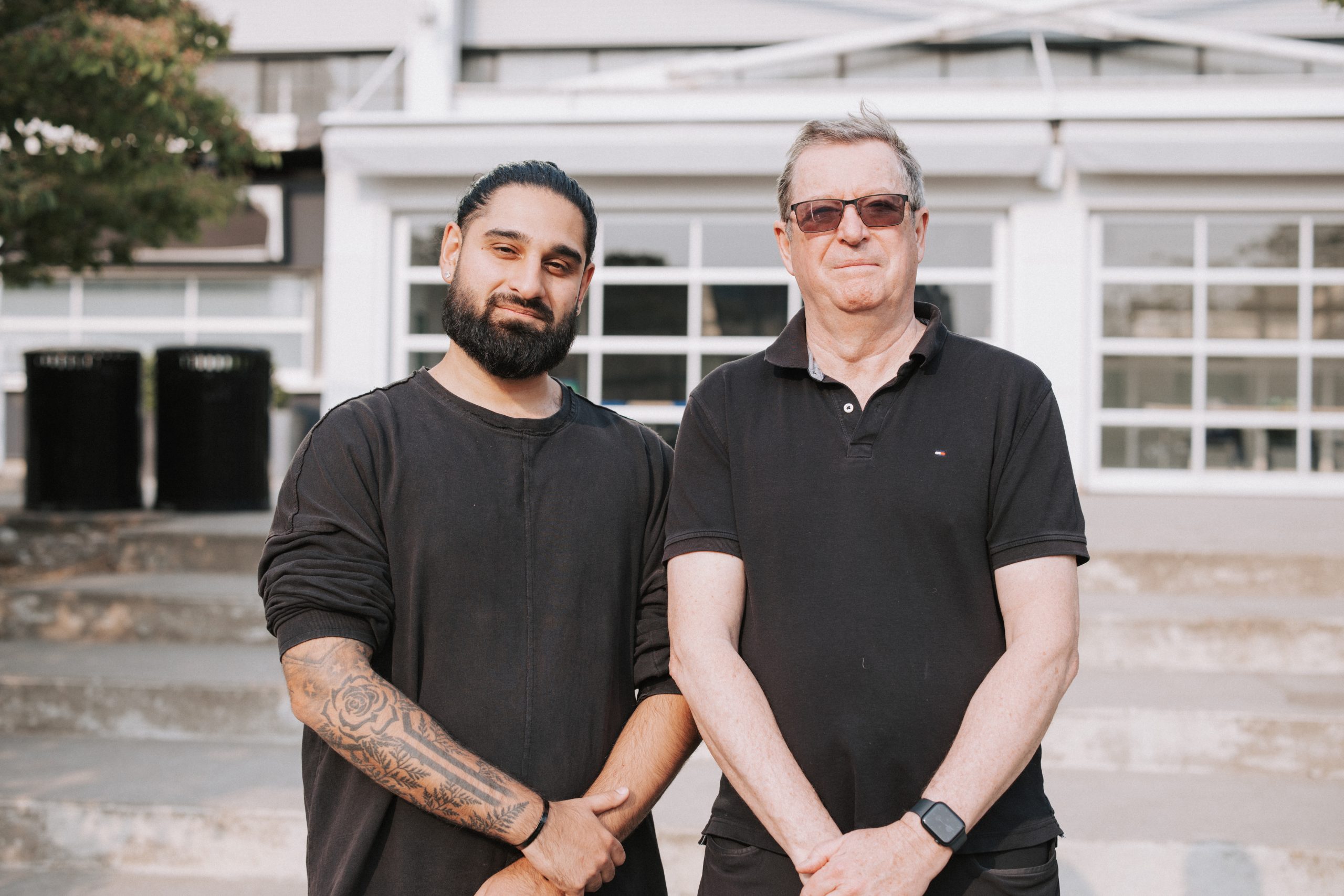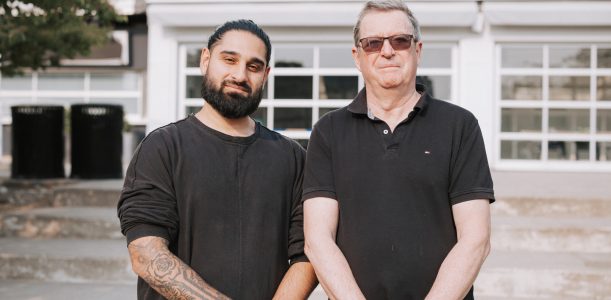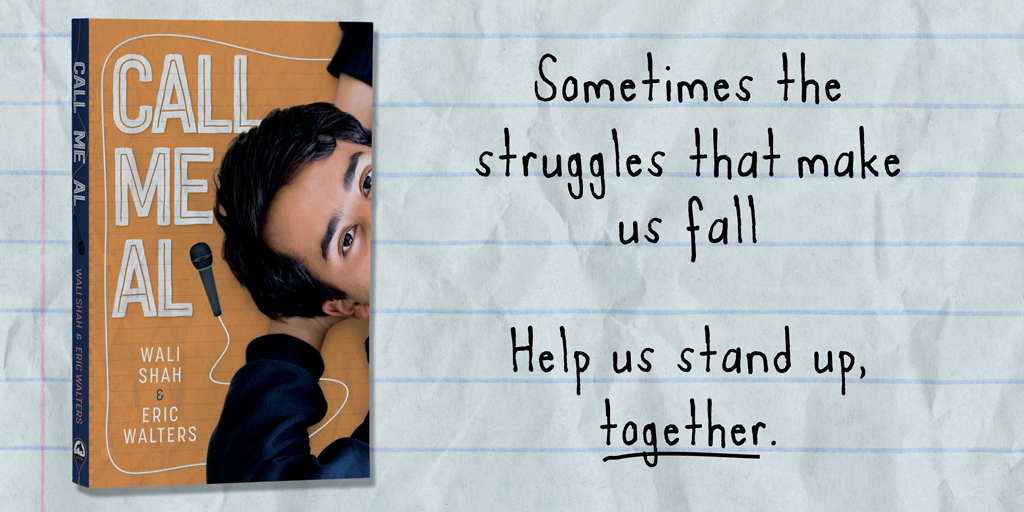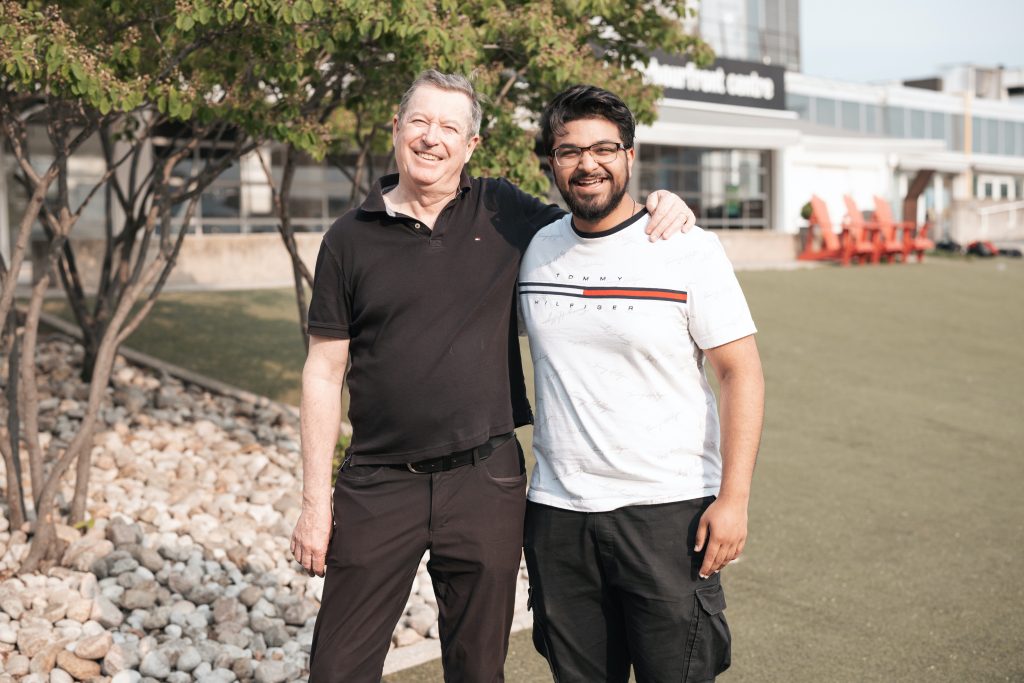Co-authors Wali Shah and Eric Walters share what it was like to work together when writing Call Me Al—and tell us about the things they learned from each other along the way.
How did you both meet?
EW: It was a dark and stormy night…
WS: We met when I was about 19 years old. I was invited to do a poetry performance at Mississauga Celebration Square for an event with the Mississauga Library, and Eric had come to share some of his work.
I was very interested in meeting him because I’d read some of his books when I was younger. After my performance, we had a chance to chat and I told him I had read one of his books, Bifocal, written by him and Deborah Ellis. It was the first time I’d ever read about a Muslim character in a book—a book that, ironically, was written by two white authors. I found that kind of interesting. And we have kept in contact ever since then.
EW: But we should also add that I got to see Wali perform. I thought, Wow, at 19, this kid really is good. I was trying to figure out how far he was going to go and how fast he was going to get there.
What was it like to write Call Me Al together?
WS: I grew up reading Eric’s books when I was in middle school, so writing with Eric was kind of surreal for me at first. And through this collaboration, I’ve really grown to respect the process and the work that Eric does. He’s undoubtedly one of the hardest working people I’ve ever met. And the fact that he is someone that I can call a collaborator—not just a collaborator but also a friend—is something that’s important to me.
About two years ago, during Ramadan, while we were in the process of writing this book, one of the things that I really appreciated about Eric was that he wanted to join me in a day of fasting to really understand the Muslim narrative and what we have going on in our community during that time. For me, that really spoke volumes about taking a step in someone else’s shoes. So, this has been a wonderful process where I feel like we’ve learned a lot from each other in many ways.
EW: This is a true collaboration. I’ve learned from Wali. I’ve become a better writer working with him, and I hope he’s become a better writer working with me.
What are some of the things you learned from each other during this process?
WS: Eric’s good at prose, and he has a good understanding of how structure needs to be in a book. I’ve never written a novel before, so understanding how sections would be laid out and what the prose would look like was new to me.
EW: A poet sees words differently. There’s a rhythm to things, and working this story back and forth, Wali had this rhythm, especially with the dialogue. This is Wali’s natural skill: the nuances, the poetry, the rhythm. And I think that’s shaped the entire book. I got better at prose writing because Wali’s a poet.
WS: I think Eric got better at writing poetry, too. I started calling him White Chocolate after reading some of the poetry excerpts he wrote from Ali’s perspective. So, Eric’s poet name from now on is White Chocolate. Let it be known.
EW: The goal of the process is to become better and to trust your partner. And to trust each other to produce good work, but to also trust them enough to say, “I don’t like that so much. Can we change that?” and to be willing to try things.
Did you both contribute to the poetry and prose in the book?
WS: There was a good amount of overlap; I feel like that’s where I learned a lot, and I think Eric learned a little bit too.
EW: Partly the prose is influenced by the poetry and vice versa. I knew Wali’s work fairly well, so some scenes were crafted because of a poem that he’d written. Some of the things that really happened to Wali and his family—an awful episode of racism that happened to his mother—became a critical scene in this book. It’s that blur between poetry, prose, fiction and fact. There are many things in the book that are based on real-world events.
The story takes place at Camilla Road Middle School, the same middle school you attended, Wali. What was it like to put your lived experiences into a book?
WS: I wanted it to be not just my story, but also a story for a lot of people that come from my community. And not just for my community, but for kids that look like Zach. I think we’re showing people the power of community and allyship. It’s not just a Muslim boy in his story; there’s more than that. How does a reader who looks more like Zach—not just one who looks like me—read this and benefit from it? That’s what’s important here.
There is a lack of Muslim narratives, especially from a boy’s perspective. That coming-of-age story for Muslims is very important. We can often be at a crossroads with our family, with our religion, with our culture. And that’s hard. It’s hard to go and speak openly to your Muslim parents about dating and relationships and having a crush on a white girl. That’s not a very common conversation in Muslim homes. It’s difficult to have a conversation with your white best friend named Zach about why you’re uncomfortable with food being around you during Ramadan when everyone else is eating and you have to stay away from that. These were the conversations we wanted to break the ice about. Young Muslim boys often don’t have many role models; when I think of myself 15 years ago, I realize that I didn’t have many to look up to. With Call Me Al, I hope to fill that gap and provide a role model that I didn’t have when I was younger.
What were some of your favourite sections of Call Me Al to write?
WS: A chapter that stands out for me is the one that describes the attack because it has a personal connection with what my family has gone through, and because I feel like that was the chapter where I really got to shape Ali as a character. If a 13-year-old kid is harassed and pushed around by a bunch of grown men in front of his family, what does he do in the face of that struggle? And the reality is, a lot of kids reading this will inevitably or may have already gone through something exactly like that. And that’s a sad reality. The reason I enjoyed writing that was because from there I could give them perspective on how to cope and deal and grow from experiences like that.
EW: Those are powerful chapters. For me, I love the resolution. I love that Ali comes to know who he is and accept himself. He grew, he changed, and his friends, his classmates, made decisions on how to become better.
What main takeaways do you hope for readers after they finish your book?
WS: I wanted to focus on community. With Zach and Ali, we see two kids that come from completely different places, but they’ve built this powerful and beautiful friendship together and worked through it. I want kids in classrooms to see that in their peers—with someone that might not look like them, someone that comes from a completely different background, but someone that they’re best friends with or they can at least try to be friends with.
I think that also speaks to the partnership between Eric and me. We come from two very different cultures and faiths, and there’s also a generational gap. But still we came together to make this work. That’s what I want to leave with everyone that reads this. It’s not just my personal experience. It’s not just Eric’s personal experience. It’s a collection of experiences that many people go through in schools just like Camilla Road. This is that community’s story as much as it is mine.
EW: This story is about friendship, and I think Wali and I have become the personification of what the story is about. Friendships are based on what we have in common as well as understanding and accepting our differences and finding those places of love.
The resolution of the book is also about hope. There’s such hope, there’s such optimism. That’s what I want people to get from this. There are terrible things in the world, but we’re going to get better. We’re going to get through this. We’re going to work together.
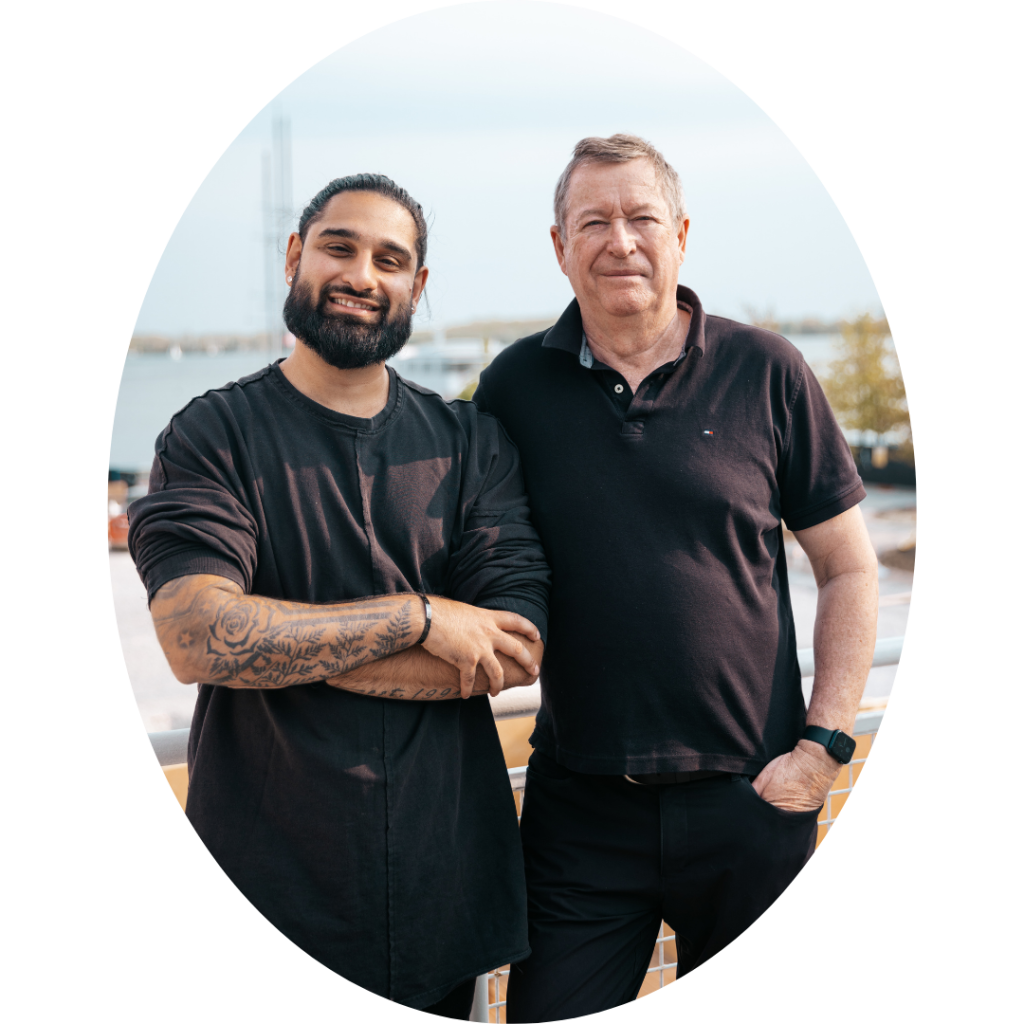
Growing up, Wali Shah faced pressure from his Pakistani-immigrant parents to choose a profession that would justify their many sacrifices. He surprised them by becoming a poet and public speaker, inspiring youth at hundreds of schools with his powerful, provocative verse. He is a fresh and current voice of the times at a diverse range of corporate events, has delivered TED talks, and once closed out a keynote speech made by President Barack Obama. Recently he served as poet laureate for the City of Mississauga, Ontario.
Eric Walters is a Member of the Order of Canada and the author of over 125 books that have collectively won more than one hundred awards, including the Governor General’s Literary Award for The King of Jam Sandwiches. A former teacher, Eric began writing as a way to get his fifth-grade students interested in reading and writing. Eric is a tireless presenter, speaking to over one hundred thousand students per year in schools across the country. He lives in Guelph, Ontario.

